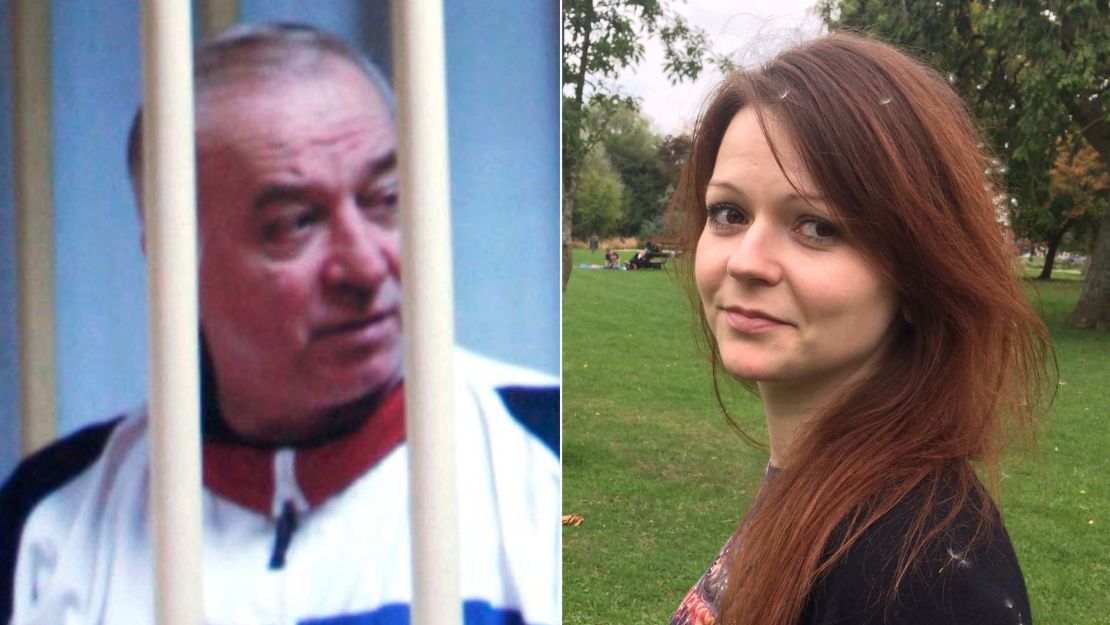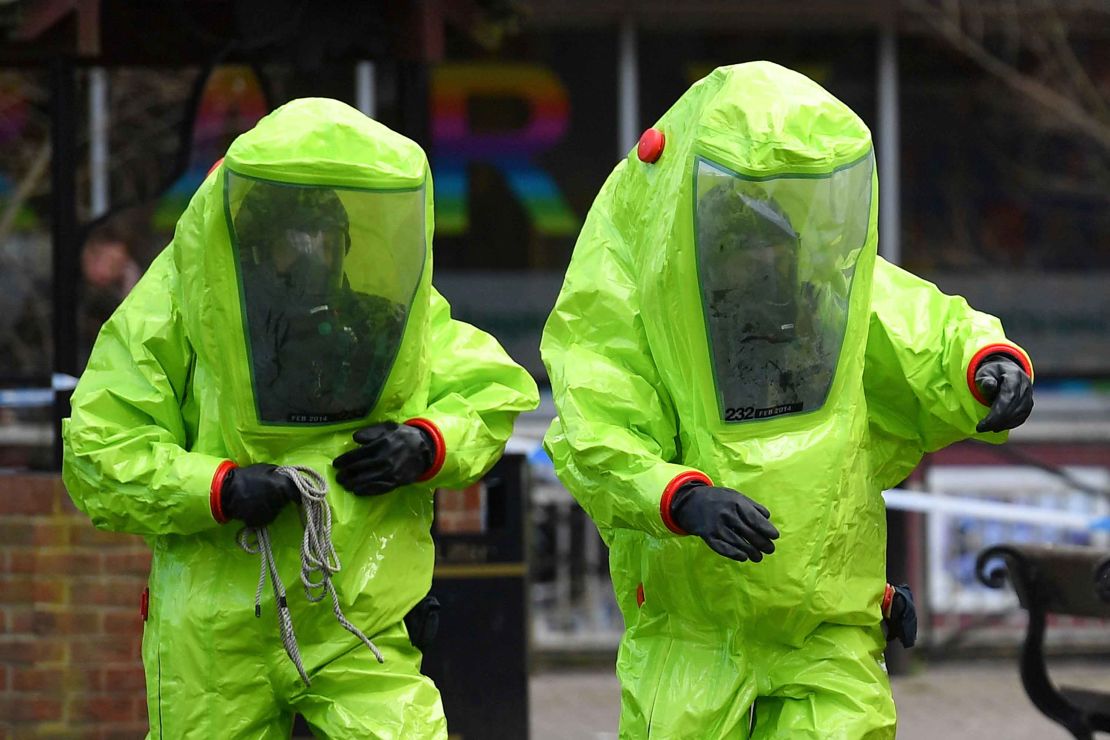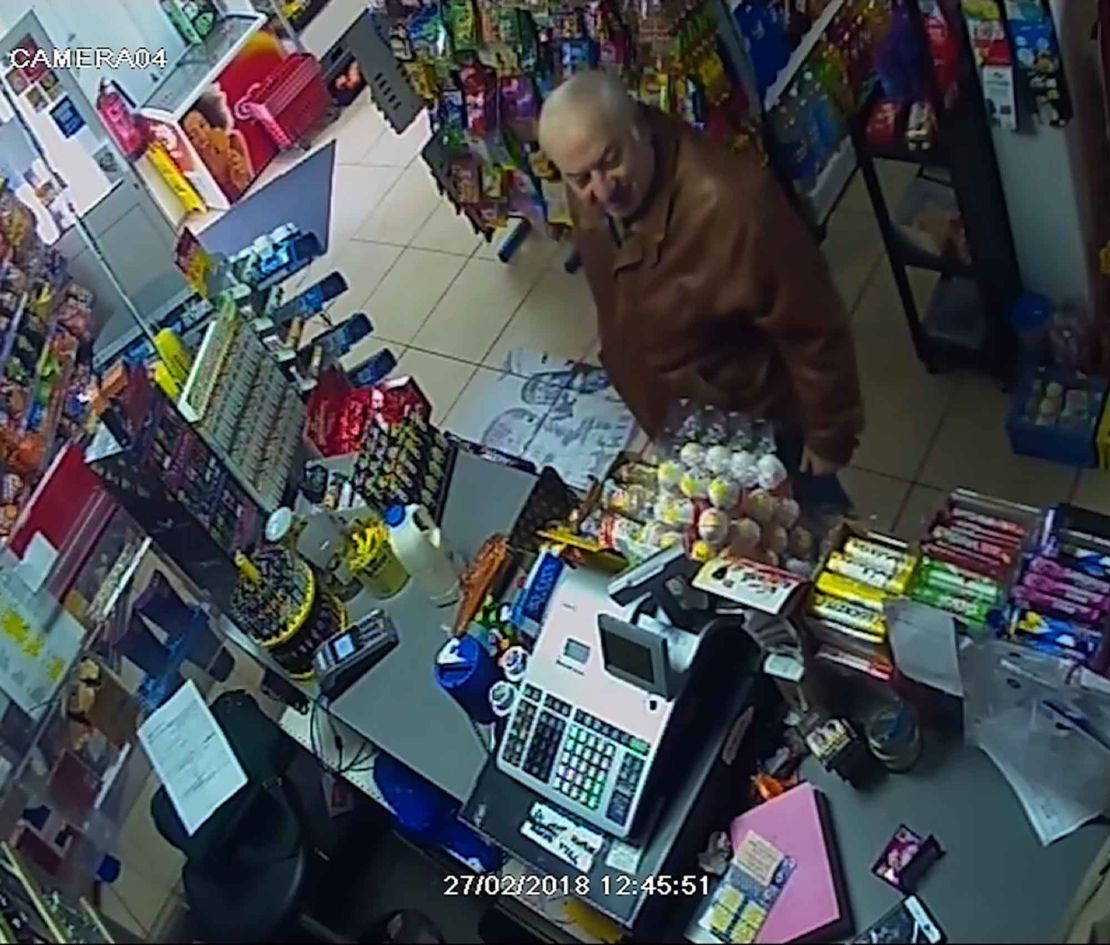The investigation into the nerve agent attack on a former Russian spy in the UK has broadened as police revealed that 21 people had received medical attention in the aftermath of the incident.
Only three – Sergei Skripal, his daughter Yulia and a police officer – remain in hospital. Police identified the officer as Detective Sgt. Nick Bailey, and said he was conscious and talking with visitors.
Western intelligence services consider Russia as a leading suspect, based on previous attacks that used a similar substance and method, a Western intelligence official told CNN. The official cautioned that the investigation into the attack in Salisbury, southern England, was still in its early stages.

Kier Pritchard, temporary chief constable of Wiltshire police, which covers Salisbury, told Britain’s Sky News that a number of people, including “multiple” police officers and members of the public, had been assessed by medics. “A number of those had been through the hospital treatment process, there have been blood tests and they’re having treatment in terms of support and advice.”
Police said that a nerve agent was used in the attack on Skripal, 66, and his daughter, Yulia, 33, who remain in critical but stable condition in hospital after being found slumped on a bench near a shopping center on Sunday. They believe the pair were deliberately targeted.

In a statement to members of Parliament, UK Home Secretary Amber Rudd refused to be drawn on who might have been responsible.
“The use of a nerve agent on UK soil is a brazen and reckless act – this was attempted murder in the most cruel and public way,” Rudd said. “People are right to want to know who to hold to account but if we are to be rigorous in this investigation we must avoid speculation and allow the police to carry on their investigation.”
If a Moscow link were proved, it would plunge relations between the West and Russia to a new low, and would call into question the British government’s ability to protect residents of the UK at home.

In Salisbury, the investigation continued to move at a fast pace. Police sealed off the gravestone of Skripal’s wife Liudmila, who was buried in 2012, and the memorial stone of his son, Alexander, who was cremated last year, the UK’s Press Association reported.
In a statement on Wednesday evening, Mark Rowley, the head of the counterterrorism division at London’s Metropolitan police, described the attack as a “major incident” and said hundreds of police officers, forensic experts and government chemical analysts were involved in the inquiry.
Police say they know the nerve agent used in the attack, but have declined to say what it was nor how they suspect it was administered. They called on anyone who visited the area on Sunday, including a branch of the Zizzi restaurant chain or the nearby Bishop’s Mill pub, to come forward with any information that might help them piece together what happened.

Russian slams UK reaction
The Russian embassy in London told reporters it had not received substantive details about the case, which it said was “rather worrying.”
A spokesman described comments by UK Foreign Secretary Boris Johnson, who vowed a “robust response” in the event that state involvement was proved, as “strongly anti-Russian.” He described the comments as an attempt to politicize the affair, and attacked the media for aiding the government’s efforts.
Skripal is believed to have lived in the UK since he was released from a Russian jail in 2010. He was convicted in Russia of spying for Britain before he was granted refuge in the UK after a high-profile spy swap in 2010 between the United States and Russia.
Yulia is thought to be one of the few members of the former spy’s immediate family still alive after his wife and son died in recent years.
Local convenience store manager Ebru Ozturk, who saw Skripal at his shop just days before the incident, told CNN that he was a “kind customer” who would usually come in once a week and buy Polish-smoked bacon and scratch-and-win lottery cards.
“He is (a) regular customer, he is so kind and he seems to me an educated person. Very polite,” said Ozturk. “I don’t talk too much to the customers, but he was, you know, one of the very kind customers.”

‘Outrageous affront’
The executive director of the Europe-wide police agency Europol, Rob Wainwright, described the use of a nerve agent to attack a former Russian spy in the UK as an “outrageous affront to our security in Europe and our way of life,” but added that people should “exercise caution before jumping to any conclusions.”
However, he said, “there are not 101 likely offenders,” apparently a reference to the difficulty in producing nerve agent, which would limit the number of suspects with the ability to carry out the attack.
Nerve agents are rarely used outside the battlefield and require considerable expertise to develop. Exposure to potent doses can result in death.
Sarin was used in the 1995 attack on the Tokyo subway, carried out by the Aum Shinrikyo doomsday cult, which killed 13 people and injured 5,500 others. Another nerve agent, VX, was used to kill Kim Jong Nam, the half brother of North Korean leader Kim Jong Un, at Kuala Lumpur international airport in February 2017.
In his comments to parliament, Johnson said the Salisbury chase had “echoes” of the plight of former Russian spy Alexander Litvinenko, who died a slow death after drinking tea laced with highly radioactive polonium-210 in 2006 in a hotel in London.
A detailed UK inquiry later concluded that Russian President Vladimir Putin probably approved the operation by Russian agents to kill Litvinenko. The Russian Foreign Ministry dismissed the inquiry as politically motivated.
Russia spy case is a chilling reminder of suspicious deaths in UK
CNN’s Laura Smith-Spark wrote and reported from London and Euan McKirdy from Hong Kong. CNN’s Jim Sciutto, Hilary McGann, Livvy Doherty, Kara Fox, Sheena McKenzie and Simon Cullen contributed to this report.




